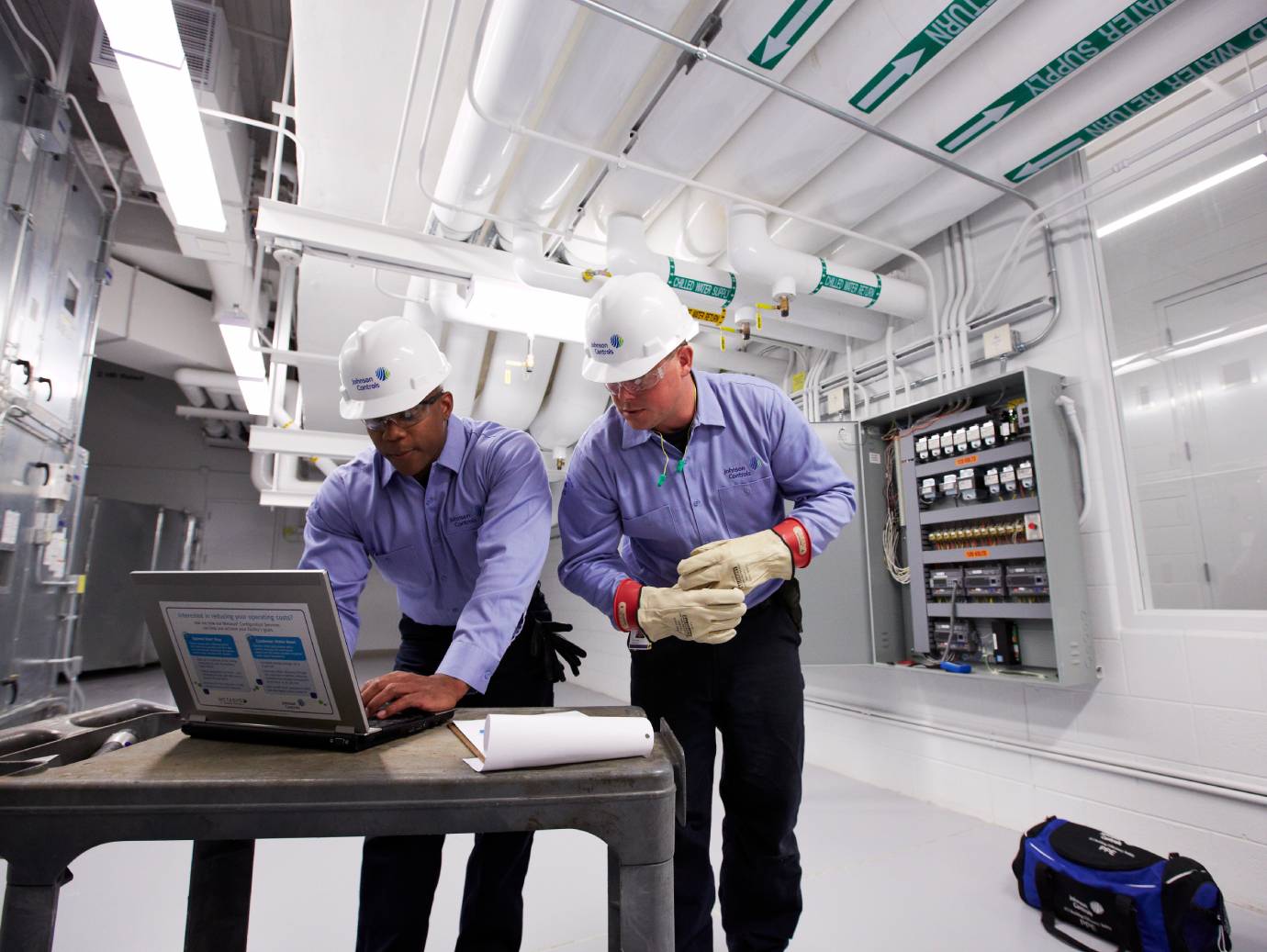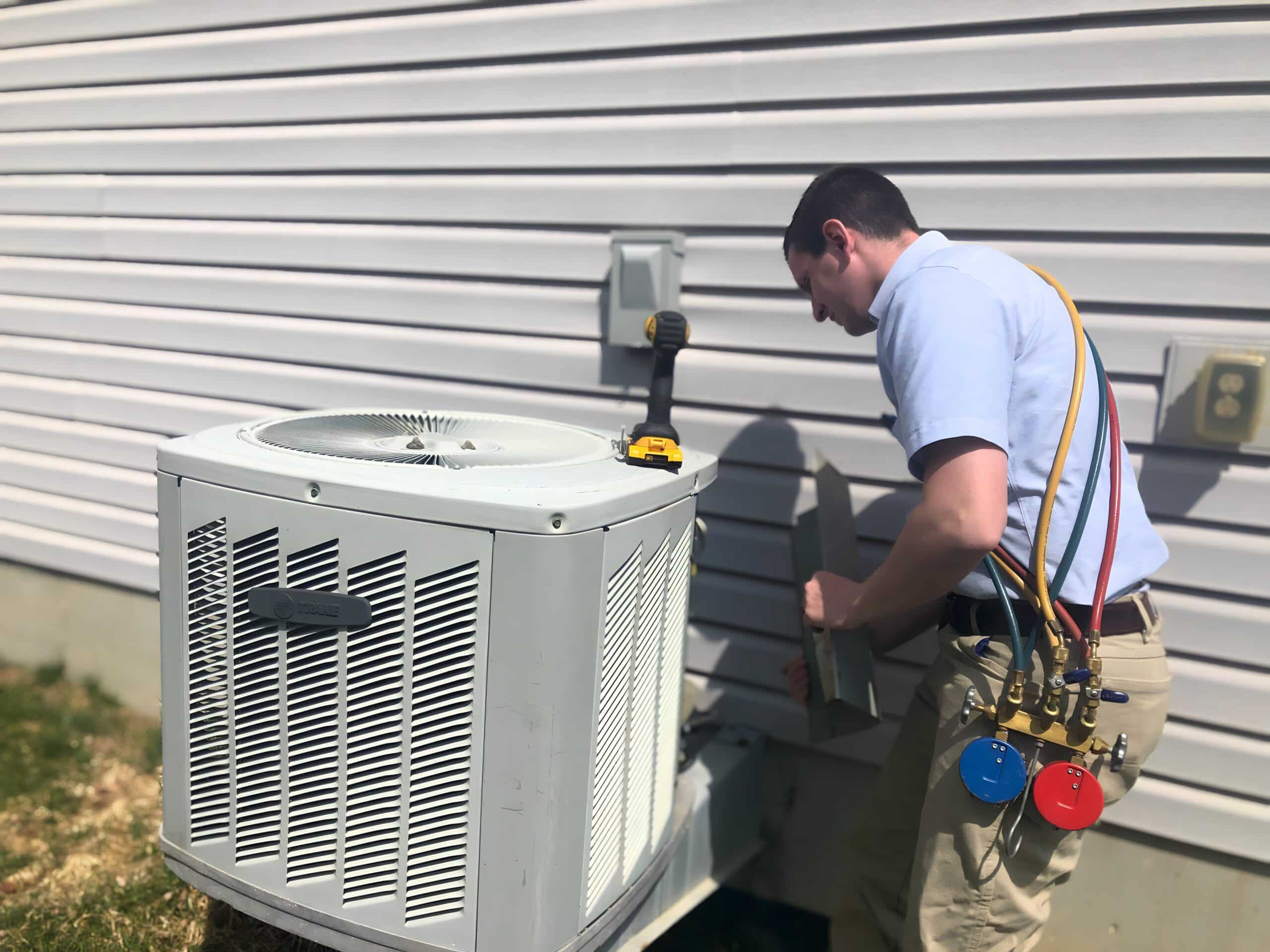Planning Ahead Before Your heat pump replacement ooltewah tn Starts
Planning Ahead Before Your heat pump replacement ooltewah tn Starts
Blog Article
Selecting Between a Heatpump and Heater: Trick Considerations for Your A/c Needs
When examining heating choices for a/c requires, the choice in between a warmth pump and a heater can be complicated. Each system provides distinct advantages customized to certain climates and energy performance goals. Recognizing these differences is crucial for making an enlightened choice. Key factors such as installation prices and environmental effect better complicate the option process. Which alternative genuinely aligns with one's comfort and sustainability choices? The following areas will certainly check out these factors to consider carefully.
Comprehending Warm Pumps: How They Function and Their Benefits
While several house owners consider different heating choices, understanding how heat pumps function and their advantages can considerably influence their decision. Heatpump operate by moving heat instead of producing it. In the winter, they extract heat from the outside air or ground and transfer it inside your home, while in the summer season, they reverse this procedure, cooling the home by eliminating warmth outside. This double capability makes them versatile for year-round environment control.One of the primary benefits of heat pumps is their power efficiency. They utilize substantially less electrical energy contrasted to conventional home heating systems, possibly causing reduced utility bills (heat pump replacement ooltewah tn). Furthermore, heat pumps have a smaller sized carbon footprint, making them an ecologically pleasant selection. They likewise call for much less upkeep than conventional systems, contributing to long-lasting expense savings. Overall, recognizing the auto mechanics and benefits of heatpump can help homeowners make educated decisions concerning their heating and cooling demands
Discovering Heaters: Types, Operation, and Advantages
Heating systems are available in different kinds, including gas, electric, and oil models, each with distinct operational systems. Recognizing these differences is important, as they affect effectiveness and heating efficiency. Additionally, heaters supply countless advantages, such as constant warm output and dependability in colder environments.
Kinds of Heaters
Heating unit can vary considerably in layout and procedure, with heating systems being a preferred option among homeowners. There are several types of furnaces, each making use of different gas sources and technologies. Gas heaters are common, leveraging gas to generate warmth effectively. Electric furnaces, on the other hand, make use of electric resistance to create warmth, often favored for their straightforward installment. Oil heating systems, while much less common, are efficient in locations with restricted gas access (ductless mini splits). Additionally, condensing heating systems take full advantage of energy efficiency by recycling and capturing exhaust gases. Each kind runs via a system of heat exchangers and ductwork to disperse cozy air throughout a home. Comprehending the differences in between these heater types is vital for informed HVAC decisions
Benefits of Furnaces
For homeowners seeking trusted heat throughout cold months, the advantages of furnaces are significant. Heating systems provide constant heating, ensuring even temperatures throughout the home. They are particularly efficient in severe cold, often outmatching heatpump in icy problems. Numerous types, including gas, electric, and oil heaters, use adaptability to satisfy diverse needs and preferences.Furnaces also have a tendency to have reduced preliminary installment expenses compared to warmth pumps, making them a much more easily accessible alternative for numerous. Their robust design adds to a much longer life-span, with numerous systems lasting over 15 years with proper upkeep. In addition, modern heating systems are commonly equipped with sophisticated modern technology for boosted performance, which can cause minimized power costs. Overall, heating systems stay a reliable option for effective home heating.

Energy Effectiveness: Contrasting Warmth Pumps and Furnaces
When comparing energy effectiveness between warmth pumps and heating systems, the Seasonal Energy Performance Proportion (SEER) plays a vital role in determining performance. Furthermore, a functional price evaluation discloses the long-lasting economic ramifications of each system. Understanding these variables can lead house owners in making notified choices regarding their heating remedies.
Seasonal Power Performance Proportion
Power performance plays a vital duty in the decision-making procedure in between warmth pumps and heaters, especially when taking into consideration the Seasonal Power Performance Proportion (SEER) This metric actions the cooling effectiveness of warm pumps over a whole cooling period, giving a standardized method to assess performance. Higher SEER rankings indicate higher power effectiveness, translating to reduced power consumption and reduced utility costs. In comparison, furnaces are typically evaluated utilizing the Annual Gas Usage Performance (AFUE) score, which reflects home heating effectiveness. When comparing these 2 systems, house owners ought to prioritize SEER rankings for warm pumps, as they straight impact total energy savings and ecological sustainability. An extensive understanding of SEER can notably influence the lasting fulfillment and cost-effectiveness of the picked HVAC solution.
Operational Expense Analysis
Comprehending the operational costs connected with heatpump and heaters is essential for property owners examining their alternatives. Heatpump typically provide greater power effectiveness, transforming electrical power into warm with minimal waste. This results in reduced month-to-month energy expenses, particularly in moderate climates. Conversely, traditional heaters, particularly gas designs, might have lower in advance expenses yet can sustain higher operational expenditures gradually as a result of sustain rates and efficiency ratings.Moreover, warm pumps can work as both home heating and cooling down systems, possibly decreasing the need for separate cooling and heating devices. While first investments for heatpump might be higher, their long-term savings in energy performance can make them an extra cost-efficient selection for many homes. Cautious analysis of regional energy rates is important to establish the most effective choice.
Setup Expenses: What to Anticipate for Each Furnace
Installation expenses for furnace can vary significantly in between heatpump and heaters, influencing home owners' decisions. Heatpump generally have higher in advance installment costs, normally varying from $3,500 to $8,000, depending on the unit size and intricacy of installation. This consists of the outside unit, interior handling system, and essential ductwork adjustments. On the other hand, furnaces have a tendency to have reduced initial costs, averaging between $2,500 and $6,000, which can be appealing for budget-conscious home owners. However, installation costs can enhance if extensive ductwork is required.Moreover, the selection of fuel kind for heaters-- natural gas, gas, or electric-- can likewise affect setup costs. While warmth pumps supply power efficiency, their first financial investment might hinder some purchasers. Eventually, assessing installment costs along with lasting savings and efficiency Read Full Report will certainly assist homeowners in making educated decisions about their heater.
Climate Factors To Consider: Which System Executes Much Better in Your Area
Just how do environment conditions affect the performance of heating unit? The efficiency of heat pumps and heaters can differ considerably relying on the regional climate. In modest environments, heatpump excel by effectively moving warmth from the outside air, making them an energy-saving alternative. Nevertheless, their performance decreases in extremely cold temperatures, where they might battle to extract adequate heat. Alternatively, furnaces, specifically gas designs, supply consistent and trustworthy warmth regardless of outdoor problems, making them more effective in chillier regions.In areas that experience milder winter seasons, warm pumps can operate effectively year-round, offering both cooling and heating. In comparison, regions with severe winters often take advantage of the effectiveness of heating systems. Inevitably, comprehending the local climate is necessary when determining in between a heatpump and a heater, as it straight affects their functional efficiency and total efficiency.
Maintenance Needs: Long-Term Take Care Of Warmth Pumps vs. Furnaces
While both warm pumps and heaters require normal maintenance to assure peak efficiency, their certain requirements and care routines differ substantially. Heaters usually require less regular attention, with annual examinations being sufficient to check for gas leaks, tidy filters, and evaluate overall capability. Their simpler style frequently permits for straightforward repairs.In contrast, heatpump necessitate semiannual maintenance as a result of their twin function in cooling and heating. This includes cleansing coils, examining refrigerant levels, and making sure that both the outdoor and indoor systems function at their best. Additionally, heat pump upkeep usually involves even more complex elements, making professional servicing essential.Neglecting maintenance can bring about lessened efficiency and boosted energy costs for both systems. Eventually, home owners ought to consider these long-lasting care needs when selecting in between a heatpump and a furnace, as positive maintenance can prolong the life expectancy and efficiency of either system substantially.
Environmental Impact: Selecting a Lasting Heating Choice
The ecological impact of furnace is a vital evaluation for home owners seeking lasting choices. Warmth pumps are usually much more energy-efficient than standard heating systems, as they move warm rather than produce it, considerably minimizing carbon discharges. By utilizing renewable power resources, such as air-source or geothermal warmth pumps, homeowners can better reduce their eco-friendly footprint.On the various other hand, all-natural gas heating systems produce greenhouse gases and contribute to air pollution, though they often provide greater heat result. Innovations in innovation have actually led to the development of high-efficiency heating systems that lessen emissions.Ultimately, choosing a home heating system entails considering performance against environmental impact. Property owners are urged to review neighborhood power resources and incentives for renewable systems, guaranteeing an option that aligns with both personal comfort and environmental responsibility. The choice impacts not only instant comfort however likewise long-term sustainability and ecological health.
Frequently Asked Inquiries
For How Long Do Warmth Pumps and Furnaces Generally Last?
The lifespan of heatpump generally varies from 15 to 20 years, while furnaces can last between 15 to three decades. Normal upkeep significantly influences their durability and effectiveness in supplying heating services.
Can I Make Use Of a Heatpump in Incredibly Cold Climates?
Warm pumps can operate in incredibly cool environments, yet their efficiency decreases as temperatures decline. In such problems, supplementary heating resources may be essential to keep comfy interior temperature levels and guarantee peak performance.

What Is the Noise Level of Warmth Pumps Versus Furnaces?
The noise levels of warmth pumps and heaters vary substantially. Typically, heatpump run even more silently than traditional heaters, making them better for those sensitive to seem, while heaters might create louder operational sounds during heating cycles.
Are Heat Pumps Suitable for Both Cooling And Heating?
Heatpump are certainly ideal for both home heating and cooling (heat pump replacement ooltewah tn). They work by moving warm, providing reliable temperature level control year-round, making them a flexible option for property owners looking for an all-in-one cooling and heating option
What Dimension Home Heating System Do I Need for My Home?
Establishing the proper dimension heating unit for a home requires examining factors such as square video footage, insulation high quality, neighborhood climate, and the home's design. Consulting a professional can assure her comment is here an accurate evaluation and excellent convenience. Warmth pumps commonly supply greater energy performance, transforming electric power into warm with marginal waste. In moderate climates, warmth pumps excel by efficiently moving heat from the outside air, making them an energy-saving choice. Alternatively, heating systems, especially gas models, supply consistent and reliable warmth no matter of outside problems, making them preferable in chillier regions.In locations that experience milder winter seasons, warmth pumps can operate successfully year-round, providing both heating and cooling. Warmth pumps are generally much more energy-efficient than standard heating systems, as they move warmth website link instead than produce it, greatly minimizing carbon discharges. By utilizing eco-friendly power resources, such as geothermal or air-source heat pumps, homeowners can even more decrease their eco-friendly footprint.On the various other hand, all-natural gas heating systems produce greenhouse gases and contribute to air pollution, though they frequently supply greater warmth result.
Report this page